Shows
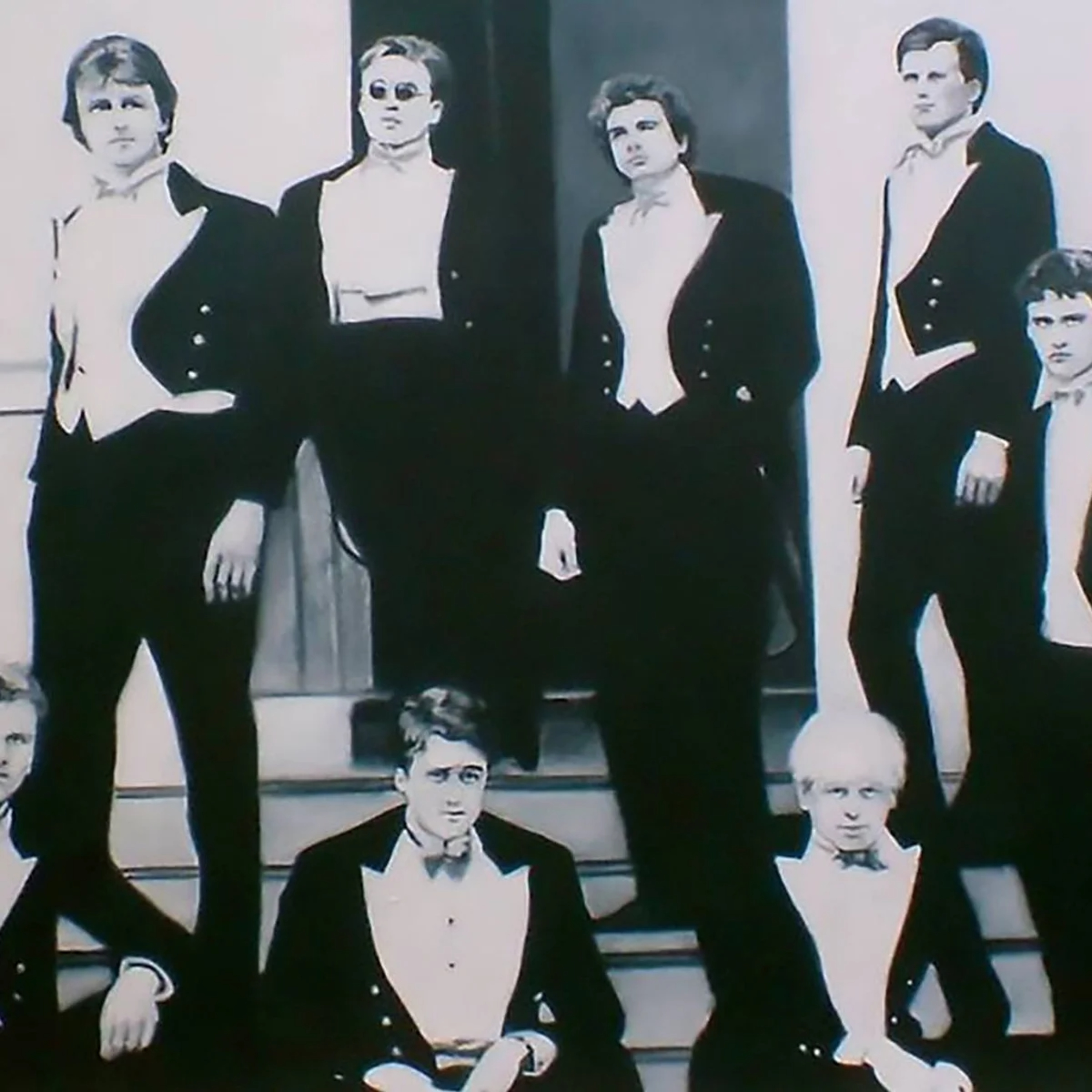
A History of England270. Phenomenal BorisIt’s the time of Boris. This episode tracks Boris Johnson’s character, starting with a less than complimentary report from his housemaster at Eton to this parents, through his time in the rich kids’ Bullingdon Club in Oxford, followed by some disreputable incidents when he was Mayor of London, to his endorsing of claims he must have known were false in the Brexit campaign. This period is capped by his becoming Prime Minister, something he doubtless felt was no more than his entitlement.The episode then follows his work to complete Brexit, including his attempt to get pa...
2025-11-3014 min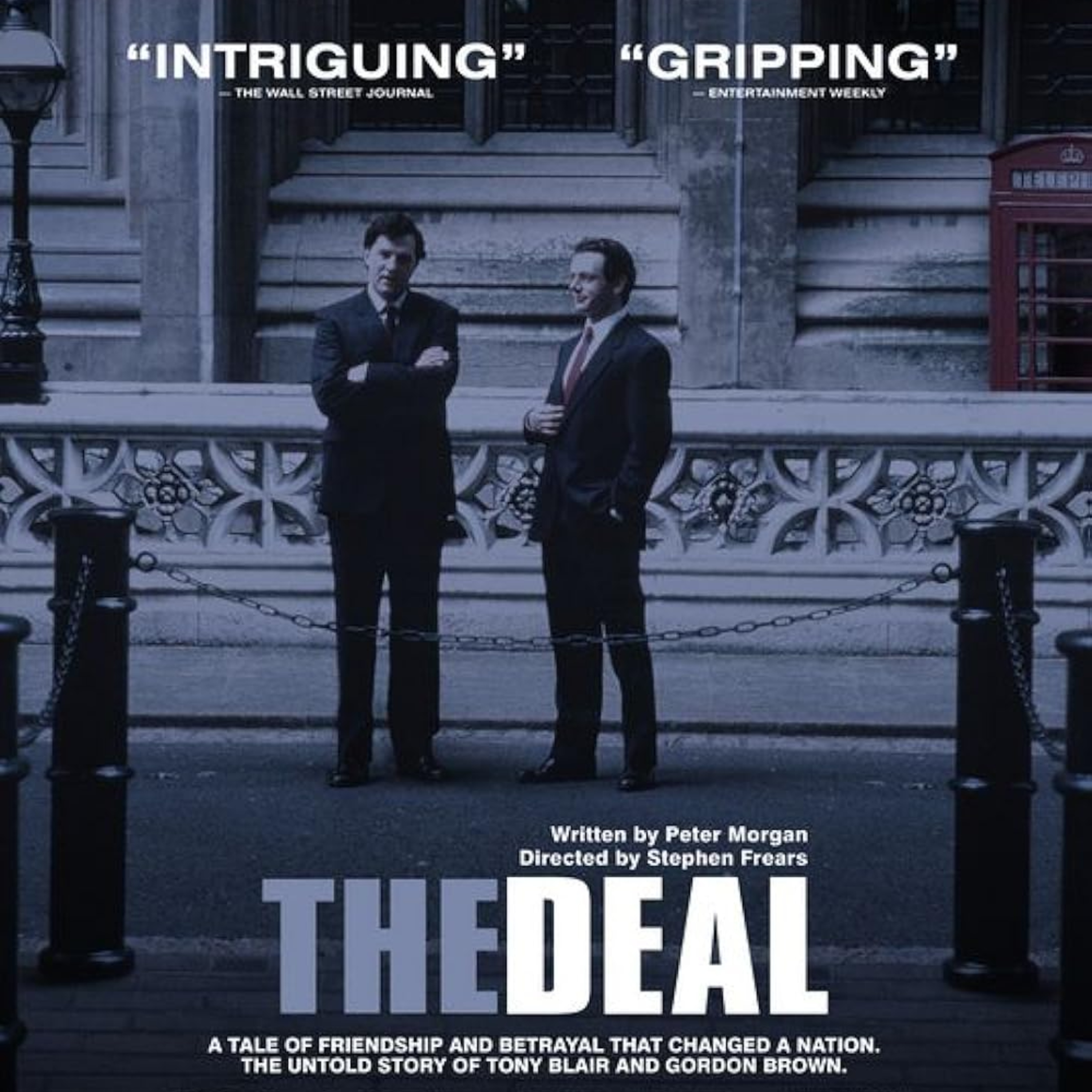
A History of England258. Major’s bastards and Labour’s dealBy winning the 1992 general election, John Major had gained his own mandate to form a government, instead of imply inheriting Margaret Thatcher’s. He’d shown himself capable of leading the Conservative Party to success, as he led it to a fourth successive election win. He’d emerged somewhat from the shadow of his Iron Lady predecessor. And then things immediately started going wrong. Black Wednesday, just months after the election, saw a major run on the pound that turned George Soros into ‘the man who broke the Bank of England’ and drove Britain out of the European E...
2025-08-3114 min
A History of England239. Winston back, Winston outThe old man was back. The Conservatives won the 1951 election and Winston Churchill returned to Downing Street. And he really was an old man – nearly 77 when he took office. To many, he it seemed increasingly clear that he was unfit for office, but he wouldn’t leave, clinging on, in the end, for three and a half years. He did get various things done. He presided over the ending of rationing. He allowed the British secret service to work with the Americans to bring down the democratically elected government in Iran, to protect British oil interests, a move...
2025-04-1314 min
Love Not FearEp. 49 Network Leadership: Transforming Company Culture Through with Jeffrey BeesonThe latest episode of the "Love Not Fear" podcast invites Jeffrey Beeson, a renowned thought leader in organizational development and network science, to discuss the dynamic interplay between network structures and effective leadership. Hosted by David Henzel, they delve into how embracing network thinking can transform company culture from autocratic models into systems built around trust and collaboration. "Traditional leadership focuses on roles and responsibilities. Network science says, "what you really need to be paying attention to is the space between the people." - Jeffrey BeesonBeeson explores how network leadership can illuminate pathways for...
2025-03-2049 min
A History of England224. Very well, aloneThe phoney war’s over. The shooting war has begun. And it isn’t going at all well.
France is in collapse, its generals quickly turning defeatist and its politicians unable to shake them out of their inertia. Churchill tried hard, flying across to talk them into keeping up the fight, but without success. In the end, they surrendered to the Germans, being forced to sign an armistice in the same railway wagon, in the same forest, where they had previously forced the Germans to sign their armistice at the end of World War One.
Brit...
2024-12-2914 min
A History of England222. All behind you, WinstonBritain, along with France, might well have declared war against Germany in September 1939. But that didn’t lead to much fighting for the next eight months. There was some action at sea, during which the British Royal Navy put an end to German surface raiders, though it had still to face the worst threat to its maritime trade, which came not from ships on the surface, but from submarines.
On land, in the west, there was practically no action, in what came to be known as ‘the phoney war’. It wasn’t phoney for the Poles of course...
2024-12-1514 min
A History of England220. Second biggest shock of 1939The Munich Agreement had bought peace. But at a price. The highest had, of course, been paid by Czechoslovakia which lost much of its territory. But there was also a cost in the increasing distrust of the Soviet Union, another of the protecting powers of the Czechs, which had simply been left out of the Munich negotiations, towards the Western Powers.
In Britain, though, Chamberlain enjoyed a burst of popularity, as the man who’d preserved the peace. It would be short-lived, however, as the enormity of the betrayal of the Czechs sank in. And after the sh...
2024-12-0114 min
A History of England214. The doormat League of NationsIn the mid-1930s, there was still widespread hope across Britain that a major war could be avoided.
That could be achieved, many believed, by international negotiation towards disarmament, and by collaboration to enforce the decisions reached. A body existed to achieve just that: the League of Nations.
It called a major conference, chaired by Arthur Henderson, former British Foreign Secretary, former leader of the Labour Party. It set out with plenty of great intentions but achieved nothing. Too few countries were prepared to trust others enough to make the cuts in their armaments that...
2024-10-2014 min
A History of England209. Aftermath of defeatWe pick up the story just after the defeat of the 1926 British General Strike.
It was a bad time for the unions, with strikes accounting for only just over a fifth as many working days lost in the whole of the next ten years as they had in the single year of 1926. Meanwhile, the Labour Party seemed to be cosying up to some strange people, specifically Lord Londonderry, Tory and coal mine owner, who became a close friend of the Labour leader Ramsay MacDonald.
It was also a bad time for the progressive movement, with...
2024-09-1514 min
A History of England190. Man of the momentOn Easter Monday in 1916, a group of armed Irish republicans took over the main post office in Dublin and several other public buildings. They had little enough popular support, and the British authorities were able to put down the uprising quickly, using Irish troops. Then, however, the military organised a court martial for fifteen surviving leaders and executed them, including a remarkable man, James Connolly, who was so badly injured he couldn’t even stand to face the firing squad and had to be shot strapped to a chair.
Those executions, followed by that of Roger Casement in...
2024-04-1414 min
A History of England179. Insurance, a mishap and two claimsThe year 1911 was action-packed.
Churchill, who’d been made Home Secretary the year before and got caught up in that great fake-news event, the Tonypandy massacre, added to his reputation, not in a good way, at the Sidney Street Siege.
His leader in their radical duo, David Lloyd George, got his National Insurance Act through and set Britain firmly on the road towards a welfare state. Not that everyone was happy about it, including many of the workers it was designed to help. But it’s noteworthy that even when the Conservative came back to powe...
2024-01-2814 min
A History of England177. People's budgetLloyd George wasn't going to be able to fund his ambitious plans for social reform by simply cutting expenditure elsewhere in government, specifically on defence. Instead he was going to have to cover both social assistance and defence.
That meant that he was going to have to raise the money from taxation. His answer was a 'people's budget'. It included a tax on value gained from selling land, and some dramatic innovations in income tax, which would certainly increase its burden.
That raised a heck of a lot of hackles, especially among the wealthy, which...
2024-01-1414 min
A History of England176. Guns AND butterThe big challenge facing David Lloyd George, and indeed the man who had become something of a sidekick of his on the radical wing of the Liberal Party, surprisingly for a former Tory, was how to pay for old age pensions and later for the other social security measures he hoped to introduce.
That was particularly difficult given the pressure to invest more in the Royal Navy, as Germany built itself more ships, and as Germany’s ally, Austria Hungary, pursued an aggressive policy in the Balkans. At one point, Lloyd George seemed to want to fund so...
2024-01-0714 min
A History of England164. Liberal stirrings against Tory dominanceWe’ve been tracking years and years of Tory rule in Britain. It’s as though the once dominant Liberal Party had practically vanished from the scene. In fact, though, things were changing in its ranks, with new figures emerging to lead the party back towards government. One of these, David Lloyd George, we’ve met before but briefly and, in this episode, we get to know him better.
However, despite the moves to start sorting out the Liberals’ difficulties and, above all, the internal divisions that were losing it so much support, it still had more pain to...
2023-10-1514 min
Beeson Divinity School PodcastBeeson's Global Center: A Conversation with David Parks and Callie TrombleyBeeson Divinity School Dean Dr. Douglas Sweeney sits down for a conversation with Global Center leaders Callie Trombley and David Parks, who tell us about recent renovations to the center as well as what the center has planned for the 2023-24 school year.
2023-09-0530 min
A History of England152. Swinging pendulum, new charactersThe pendulum had been swinging fairly steadily over the twenty years up to the early 1890s, with any party that won an election generally losing the next. That happened again in 1892, although the win was nothing like as decisive as Gladstone had hoped, leaving him instead dependent on Irish MPs to have the votes to challenge for office again.
It also produced a crop of interesting new characters for the politics of the future. The first Labour MP independent of the Liberal Party, Keir Hardie. Edward Carson, the Unionist lawyer from Dublin who’d already won a re...
2023-07-2314 min
Who the hell is Norfolk?Charles I gets his behind handed to him on a plate by the Scots, and parliament comes back with a vengeanceWe're back to following the episodes of A History of England by the masterful Mr. David Beeson. We cover the lead-up to the English civil war, where we discuss:
Veteran Scottish soldiers doing a better job than hapless militia being dragged around the country by their king
Glorious self sacrifice
Descartes and his health problems
Don't forget to contact us at whothehellisnorfolk@gmail.com
2023-03-2330 min
Beeson Divinity School PodcastPublishing: A Conversation with David NelsonCo-hosts Doug Sweeney and Kristen Padilla start a two-week series on publishing with two Beeson alumni. Our first guest is David Nelson, who has a decade of experience in acquisitions and editorial experience.
2022-04-2637 min
Beeson Divinity School PodcastState of Evangelical Seminaries: Conversation with Collin Hansen and David ByersCo-hosts Doug Sweeney and Kristen Padilla talk to the co-chairs of Beeson's Advisory Board, Collin Hansen and David Byers, about the state of evangelical seminaries in the U.S., why they choose to serve on Beeson's Advisory Board, what excites them about Beeson and more.
2022-01-1127 min
Beeson Divinity School PodcastState of the Evangelical Church: A Conversation with Collin Hansen and David ByersCo-hosts Doug Sweeney and Kristen Padilla talk to the co-chairs of Beeson's Advisory Board, Collin Hansen and David Byers, about the state of the evangelical church in the U.S., their own church involvement and the way their work supports the ministry of the church.
2022-01-0431 min
A History of England66. Crisis in BritainWhile there’s much talk about the huge gains made by the American colonists, and the triumphant launching of the United States of America, far less is generally said about the effect of the American war in the mother country itself. Since Britain was also fighting France, Spain and Holland, the impact on its economy was massive, and on the political establishment if anything even more massive. Loyalty swung wildly, old allies became new adversaries, or vice versa, administrations were formed and fell in rapid succession. All this happened while in the background the latest battle was being fought be...
2021-11-2914 min
A History of England65. Another RevolutionWith the fall of Lord North’s government, king George III found himself obliged to submit to the authority of parliament and appoint a government led by the Marquess of Rockingham, a man he deeply disliked and distrusted. His resentment was all the deeper because Rockingham, almost certainly at the urging of his secretary the remarkable Edmund Burke, laid down conditions for the formation of the government, and in particular the staggering words, “The king must not give a veto to the Independence of America.” A subject telling the king what he must not do? That was a small revolu...
2021-11-1914 min
A History of England64. North's last laughWe’ve seen how the British war in North America led to yet another world war, and how that war then reacted back on the American fighting by, in effect, making the victory of the rebel colonists ultimately all but certain. In this episode, we think about what the impact of all that was on life in Britain itself. There, it played a huge role in the never-ending battle between royal and parliamentary power.
The king, George III, was fighting to hang on to his still considerable prerogative, in particular to appoint ministers, including the leading figure in...
2021-11-1314 min
A History of England63. Ingredients of DefeatWhat led to the British defeat in North America? Was it a battle at Yorktown in Virginia, brilliantly won by George Washington and the Count of Rochambeau's American and French armies? And did that victory at Yorktown immediately lead to US independence?
This episode sets out to give the context to Yorktown and reinterpret the common narrative about the Franco-American victory. Essential to a new understanding is to take into account that Britain was no longer fighting just a war in America, but another world war, after the Seven Years' War. This time, though, a decade and...
2021-10-2814 min
A History of England62. DivorceThe revolting Americans, by the time of this episode, have decided they’ve had it right up to here with the Brits. It’s time to part company. So they adopt a Declaration of Independence, basically serving divorce papers on the Mother Country. Which refuses to sign them, of course, ensuring that the ugly dispute lasts another few years.
As for that dispute, it goes on with the advantage swinging from one side to the other. William Howe wins a couple of victories over the still inexperienced Washington, but fails to follow them up. Washington gets good at d...
2021-10-2214 min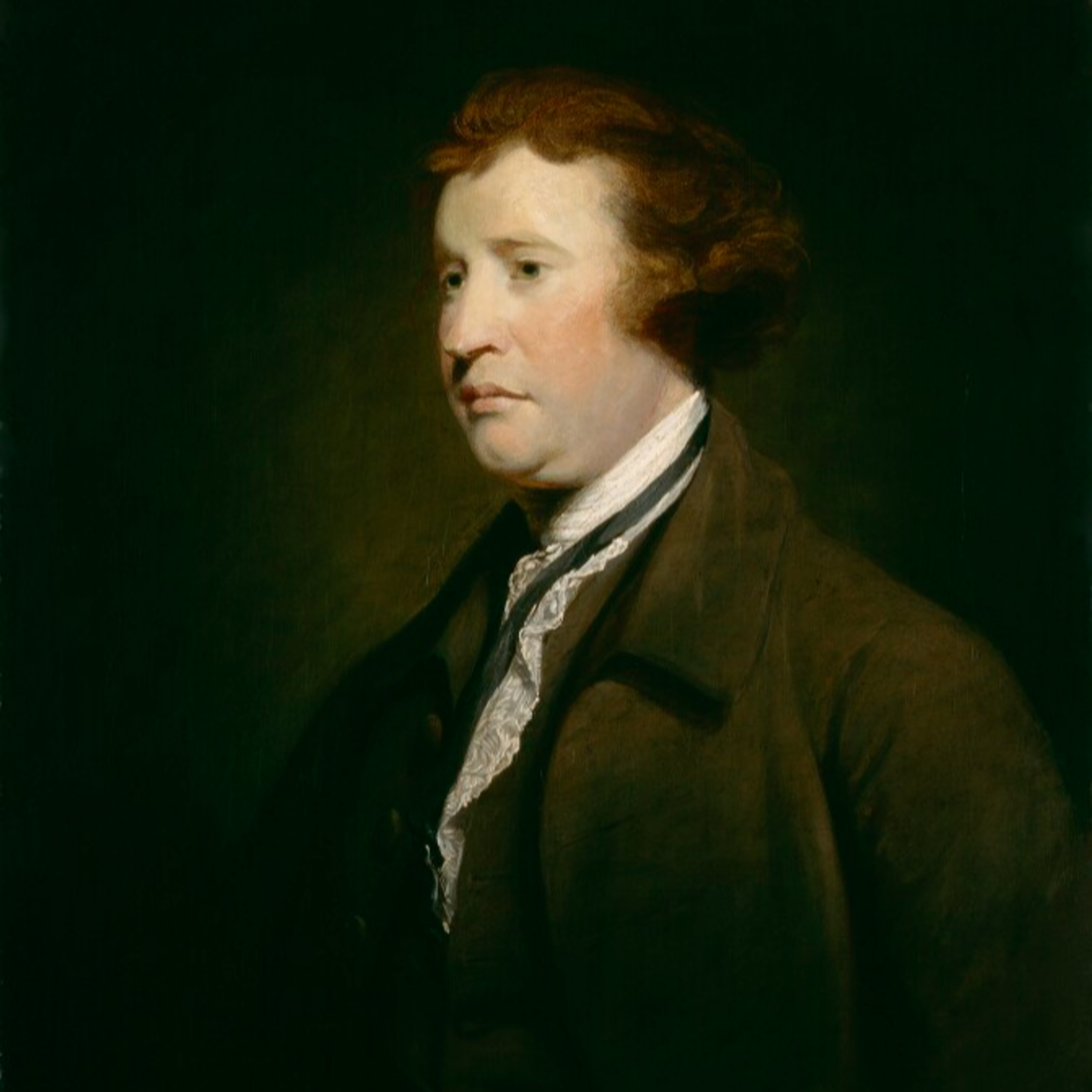
A History of England61. None so deafEnjoy the words of two remarkable people in England who battled on for the cause of conciliation between the home country and the colonists in America. Neither was listened to. This was a time when many in Britain wanted only to turn a deaf ear to the Americans and their concerns.
Meanwhile, back out there, General Gage was still in command of a military force occupying Boston. He decided it was time to use his military force militarily and sent troops to two Massachusetts villages that have since entered American legend. They are Lexington Green and Concord.
2021-10-1914 min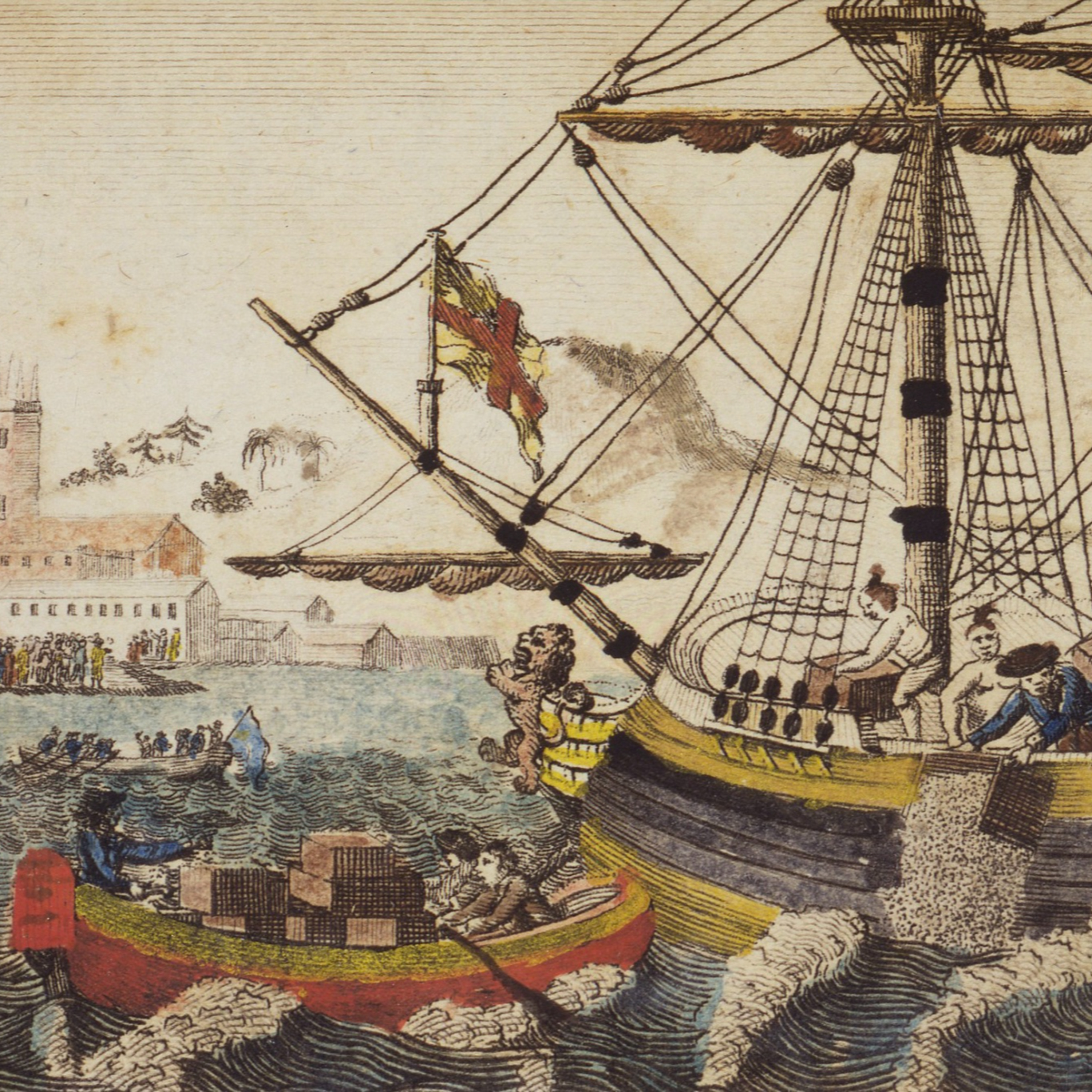
A History of England60. Things go south under Lord NorthIt’s time for that exciting moment in American (and British) history, the Boston Tea Party. But tea, as well as being a commodity deeply rooted in the British soul, is also a wonderful link between the two wings of Britain’s growing Empire, India and North America.
In India, of course, power was still being exercised by the East India Company. That had disastrous results in the subcontinent, and a corrupting effect in Britain. But the government found itself powerless to do anything about it, while the Indian people, especially of Bengal, suffered tragically.
As f...
2021-10-0814 min
A History of England59. The Americans are revoltingThe moment has arrived. The Americans are, at last, revolting. And it was far from inevitable. What made sure it would happen was the brainlessness of British leaders, most specifically in this episode, General Thomas Gage in America and Lord North in London.
Gage landed troops in Boston to restore order. But putting an army amongst a resentful civilian population was never going to end well. And it didn’t. The killing of a child and then the event that came to be known as the Boston Massacre kept the resentments alive.
But still a sp...
2021-10-0114 min
A History of England58. Digging the hole deeperFaced with deepening and increasingly violent resistance to its rule in the American colonies, Britain's new Prime Minister, the Marquess of Rockingham, repealed the Stamp Act that had excited so much anger. William Pitt, in particular, spoke out forcefully against that Act, and Benjamin Franklin warned British parliamentarians of the difficulties ahead. However, Rockingham and even Pitt, still believed that Britain had the right to impose its will on the colonies. Repeal of the Stamp Act was followed up two months later by passage of the Declaratory Act, asserting British control in America, at just the time when that control...
2021-09-2913 min
A History of England57. Sons of LibertyThe British government of the 1760s couldn’t complain that nobody had warned it of the catastrophic consequences of trying to inflict taxes on the American colonists, without their consent. 'American' was increasingly the right word for them, as various forces, including non-English immigration, began to change the nature of the population.
Even so, they remained for the most part wedded to their British roots. Their anger at the government’s behaviour wasn’t just a rejection of British highhandedness. On the contrary, many of them spoke out as Brits against Britain’s trampling on long-established British rights t...
2021-09-2214 min
A History of England56. Taxing timesLord Bute, as Prime Minister, did what he could to attack the British public debt by reducing costs. But there were limits to how far he could go. Eventually, he needed to raise taxes too. With his Chancellor of the Exchequer, Pitt’s former friend and now political enemy George Grenville, he pushed through a tax on cider. Then, after Bute fell and was replaced by the same Grenville, it was time to try taxing the American colonists.
There were widespread objections to the Sugar Tax, but eventually it was grudgingly accepted and generally paid. Sadly, Grenville co...
2021-09-1014 min
A History of England55. You’re not all at sea if you know where you areIt may not come as a surprise to discover that many authorities believe that, if you’re doing a long journey at sea, it can be helpful to know where you are.
Working out your latitude was relatively simple and had been known for a long time before the eighteenth century. Longitude was another matter. The British government even put up a prize for the first to come up with a really viable solution.
Enter John Harrison, a remarkable craftsman. He started as a joiner, so a skilled woodworker. When he started building clocks, he us...
2021-09-0314 min
A History of England54. The cost-cutters take chargeYou may like or loathe the British Empire. But if the aim was to build it, few people did it with such skill or such success as William Pitt the Elder when, at last, he found himself the driving force in government. However, to achieve his goal, he spent huge amounts of money, for which he drove up the national debt to levels many thought unacceptable, because unsustainable. And one of those people was the king.
This is a recurring occurrence in English history. From time to time the cost-cutters take charge. When it comes to bold...
2021-08-2714 min
A History of England53. Two young men unleashed: RobertThe second of our Two Young Men Unleashed, after James Wolfe, is Robert Clive. He too was of minor gentry background, but the resemblance ends there. His childhood was marked by some violence, courage, and even criminality: he ran a protection racket for a time. These qualities served him well as he emerged as an unexpectedly gifted soldier in the service, not of Britain, but of the British East India Company, using military force as well as bribery to advance its interests, and his own, in the subcontinent.
In this way, he helped turn India into a...
2021-08-2014 min
A History of England52. Two Young Men Unleashed: JamesThe original jewel in the British imperial crown wasn't India but North America. And William Pitt the Elder, Prime Minister in all but name since our last episode, was going to make sure the armed forces there were up to the task of breaking the stranglehold of the French. That meant spending what was needed, but also making sure that forces were well-led. Pitt was ready to do whatever it took to make that happen, even if it meant breaking with centuries of tradition, and promoting men on merit not aristocratic background.
That made it possible for...
2021-08-1314 min
A History of England51. The next roundAn Admiral’s career reaches a sticky end as he’s shot to encourage the others to do better. A remarkable politician, denied advancement repeatedly, finally breaks through to power. Another war spreads across the world but, with fine leadership, this time Britain will spend the money necessary to make sure it’s truly decisive.
It’s the beginning of the Seven Years’ War and the time of William Pitt the Elder.
Illustration: William Pitt the Elder in 1754, from the studio of William Hoare
National Portrait Gallery 1050
Music: Bach Partita #2...
2021-08-0614 min
A History of England50. Preparing for next timeIn the uneasy peace between the War of Austrian Succession and the Seven Years' War, Britain set about securing its growing imperial power. Central to it was its position in North America, as many visionaries saw, not least the then committed supporter of the Empire, Benjamin Franklin, in Pennsylvania. But that meant dealing with the French stranglehold around the British Colonies in what is now the United States. Three attempts, first manned and led by Americans (George Washington's first and defeated command), and then directed by Brits (to no better success), all failed spectacularly, demonstrating nothing so much as...
2021-07-3012 min
A History of England49. Oh no! Not more Stuarts...While the British army was on the European continent, putting up a pretty useless fight against the French in the Austrian Netherlands, Charles Edward Stuart launched a new uprising - or possibly rebellion, depending on your point of view - back in Britain. Known as Bonnie Prince Charlie to some, his uprising - the final attempt to put the Stuarts with their absolutist views of monarchy back on the throne - was far from bonnie in its consequences for the people of Scotland. Partly because he turned out to be a less attractive character than one might believe, but...
2021-07-2313 min
A History of England48. The Austrian ThroneThere was no real problem with a woman inheriting the Austrian throne. But it could be a useful pretext for war by nations keen on advancing their own interests militarily. Frederick II of Prussia was quick to go to war - the Philosopher Prince became a Military King when he had the power to - and he seized the rich Austrian province of Silesia (which is actually Polish, but neither the Austrians nor the Prussians cared about that).
Britain kept fighting the War of Jenkins' Ear against the Spanish, but then it got subsumed into the War o...
2021-07-1614 min
A History of England47. Time for another warAh, those were the days. When Britain went to war over a sea captain who'd had an ear cut off. And taught the Spanish a thing or two.
Except, of course, that Britain didn't go to war for that reason. And they taught Spain nothing. In fact, the Spanish taught the British a lesson, though we shall discover later that it wasn't listening.
It took Britain eight years to decide to go to war with Spain, ostensibly over the outrage of Jenkins' Ear. That delay shows how little the war had to do with the...
2021-07-0914 min
A History of England46. FreedomBritain, its idealists claimed, was launching an Empire of Freedom. The reality, sadly, was rather different.
Europeans, with Brits in the forefront, had developed a love of tobacco, and above all a sweet tooth. They wanted sugar for their cakes and pastries, but above all for their coffee, chocolate and, that new British institution, tea. But sugar production requires backbreaking work under terrible conditions. This was work, and in conditions of heat, humidity and disease, few Europeans felt they could handle.
And so Africans were brought in to do it instead.
Not voluntarily.
2021-07-0314 min
A History of England45. Robinocracy'Robin', or Robert Walpole, Britain's first and longest-serving Prime Minister, came to be known as 'Cock Robin'. Possibly because people around him felt his success had made him cocky. The regime over which he presided was termed the 'Robinocracy'.
It was an era of peace, stability and improving government finances. Not enough to save him ultimately from his adversaries, dissident Whigs such as George Grenville and William Pitt the Elder - in other words, members of his own party. He'd given them peace, but they wanted war. Specifically, they wanted Britain's voice to be heard on the w...
2021-06-2710 min
A History of England44. The Prime MinisterThe title 'Prime Minister' used to be a term of abuse. To be honest, depending on the holder of the office, plenty of people would maintain it still is.
The first person of whom it was used as a real title in Britain, even if still not officially, was Robert Walpole. We've already met him, as a man who did rather well out of the South Sea Bubble, if more by good luck than by good judgement. That and the support he offered some powerful people in the wake of the scandal around the bubble, above all t...
2021-06-2211 min
A History of England43. BubbleNot all bubbles are all that bubbly. The South Sea Bubble made some people a lot of money - such as Isaac Newton, the physicist but also skilful financier - or a colossal amount of money - such as Thomas Guy, who founded Guy's Hospital, still one of England's great teaching hospitals. But it also ruined a lot of others. Rather like every bubble, down to the present day.
This bubble also opened the door for a man who might sort the fallout so competently that not too many in the English elite would suffer badly. Which w...
2021-06-1710 min
A History of England42. The business of empire is businessEngland in the early eighteenth century was undergoing great changes. London was Europe's biggest city. And the country was rapidly emerging as a major business centre, displacing the Netherlands from that position. It had a thriving stock exchange and huge overseas trade, led by the venerable East India company.
It was also becoming a far livelier place in politics and in thought, with more tolerance for unorthodox ideas and political opposition than most countries. Though, as the experience of Daniel Defoe showed, there were still strict limits to just how far tolerance went.
Limited or...
2021-06-1214 min
A History of England41. Sex and SicknessLady Mary Wortley Montagu was an extraordinary woman, both in her personality and in her contribution to the world, specifically in medicine.
This episode looks at both aspects, trying to pick out the complex character behind her image, in particular her possibly ambivalent and certainly far from obvious sexuality.
Then, however, it looks at how she became a leading benefactor to humanity, by introducing to England, and through England to Europe, the life-saving procedure of immunising against smallpox by inoculation with the disease itself. That makes this episode not entirely suitable for anti-vaxxers, especially as it...
2021-06-0714 min
A History of England40. Bye, bye Anne. Hello, George. And bye, bye James yet againIn the dying days of her reign, we see Queen Anne refusing royal assent to a bill, a historic moment only because it was the last time ever that a British monarch blocked a bill passed by both Houses of Parliament from becoming law (but she did do it on the advice of her ministers...)
We also see her engineering herself a Tory government, backing her High Church Anglican views. Not for long though. When she died and George I took over, he lined up with the Whigs, especially on the terms of the Peace of Utrecht...
2021-06-0312 min
A History of England39. Great BritainIt's time for a new country. Time to shake off the old bickering small nations around the island of Britain. It's time for Great Britain to emerge as a powerful new player on the world stage, bringing together Scotland on the one hand and England-and-Wales on the other. Though the fact that Wales is already just an adjunct of England shows what's likely to lie in store for Scotland down this road.
How did Scotland get bought, browbeaten and bribed into joining a union with England? Well, by being bought, browbeaten and bribed. This episode investigates the...
2021-05-2814 min
A History of England38. Malbrough s’en va-t-en guerreThe War of the Spanish succession was really just the continuation of the Nine Years' War, but this time with the specific issue of the succession to the Spanish throne at stake. That, incidentally, meant that Spain swapped sides, fighting with France this time around, since the dying Spanish king had triggered the war by leaving his crown to a claimant from the French royal family.
It was a war where the Grand Alliance, again led by Austria, Britain and Holland, won a few battles. It was its turn, after all, following the French victories in the...
2021-05-2314 min
A History of England37. Who'll take the decisions?As William III, reigning alone since the death of his wife Mary II, approached the end of his reign, there was clearly a vital issue to address. Mary's sister Anne was the only Protestant heir to the throne recognised in law, and England was certainly not going to put up with another Catholic monarch, after James II. But to find a non-Catholic heir meant going back up the royal family tree quite a way, to James VI/I indeed, and making his granddaughter, Sophia, wife of the ruler (Elector) of Hanover, next in line after Anne to the throne.
2021-05-1814 min
A History of England36. Just one war after anotherJust as soon as William III could free himself up from wars in the British Isles, to secure his throne (and his wife Mary II's), he got stuck into the fighting on the Continent, on behalf of his home country of Holland. This was the Nine Years War, where the Grand Alliance fought to block the attempts of Louis XIV's France to win the territory it needed to give it what it regarded as defensible borders (its 'natural' borders).
It might have looked as though France was championing Catholicism against Protestant Holland, except that the Grand Alliance...
2021-05-1313 min
A History of England35. Bloodless? Did I say bloodless?That’s it: we’ve reached the great and dreadful moment of the Battle of the Boyne, an event that casts its shadow right down to the present day. Each year – on an oddly chosen anniversary date – Orangemen, called after William of Orange, march in Northern Ireland to remind everyone of their triumph over Catholic forces.
Then the episode switches its attention to Scotland, and events just as iconic, occurring in the picturesque valley of Glencoe.
The Boyne and Glencoe: they demonstrate just how little the word ‘bloodless’ applies to the Glorious Revolution. And in what a limit...
2021-05-0810 min
A History of England34. Another theatre in a wider warIt's the run up to the Battle of the Boyne.
So we're chatting about the many motivations for William III's invasion of England. Yes, the aims of the Glorious Revolution, protecting or simply implementing a particular view of a certain number of English liberties, mattered. But there was also the much more personal objective of protecting his wife's claim to the English throne, which he would share with her. And then, as a Dutchman, he wanted to get on with fighting Holland's war against France. For that, English neutrality would be a great improvement over its potential i...
2021-05-0311 min
A History of England33. Two for the price of oneThe Glorious Revolution led to England having two reigning monarchs for the price of just one: William III and Mary II, or Williamandmary, as we like to think of them.
It started with a Bill of Rights, which no one signed and never became law, but it was destined to have a great role in the future. Curious, isn't it, how something with no immediate impact can turn out to be historic?
Some bits of it led to legislation, including the Settlement Act, which legitimised the new monarchs' rule, a pretty remarkable step, seeing as i...
2021-04-2811 min
A History of England32. Glorious RevolutionWas it glorious? Was it even a revolution?
The Glorious Revolution brought to an end the short and little lamented - indeed, lamentable - reign of James II of England, James VII of Scotland, and with it, the Stuart dynasty on the throne of England.
But there was little fighting, particularly as James behaved uncharacteristically and fled abroad, after offering little resistance. And while there was certainly significant change, in that William III and Mary II replaced the king, and did so on the invitation of parliament, not by divine right - a revolution in...
2021-04-2310 min
A History of England31. The Stuarts: plumbing the depthsWe stand on the brink of saying goodbye to the Stuart kings, at last (not, alas, to the Stuarts though: they'll be back a couple more times to haunt us).
The history of England saved the worst to last: James II, or James VII in Scotland, was the bottom of the barrel, the worst of the Stuarts, the man whose only achievement was to help shorten his reign by his sheer ineptitude.
We'll find out how, we'll find out who was standing in the wings ready to take over, and how he needed to be i...
2021-04-1810 min
A History of England30. Time to partyIn the course of Charles II's reign, we saw governments fall and an opposition beginning to emerge. The result was the formation of two distinct groups, the Whigs and Tories, the former looking for limited royal power, the other more strongly royalist. Neither was keen on Catholics, but the Whigs were rather more intent on protecting the country against what they saw as Papist plotting to overthrow the Protestant regime.
It was in its early days, and it wasn't yet the party political system we know but perhaps don't love, but this was the beginning of its...
2021-04-1314 min
A History of England29. More gilded than golden?When we last took a look at the so-called golden age of Charles II, we talked about the persecution of Catholics and, in particular, the witch hunt launched against them during the Popish Plot craze launched by Titus Oates's fabrications.
But Catholics weren't alone in being given a lousy time. Puritans, the more fundamentalists of Protestants, were also targets. They were seen as the main architects of the English republic that had just ended. They were also seen as dangerously unorthodox, when conformity was viewed as the right way to go. This was the last time, indeed...
2021-04-0811 min
A History of England28. The golden age loses its sheenWas that golden age, following the restoration of the monarchy in England, really that golden?
This episode looks at how it lost its sheen, particularly when the champion fabricator or fake news and false denunciations, Titus Oates, came along and plunged the country into the hysteria of the Popish Plot. That was like so many other witch hunts, even the McCarthy anti-Communist hunt in the 1950s. And, like most conspiracy theories, based on pure fiction. Or, rather, impure fiction.
Illustration: Titus Oates, engraving after and unknown artist
National Portrait Gallery D16604
Music...
2021-04-0314 min
A History of England27. The Golden Age continuesCharles II's Golden Age continues in this next episode, although the title, with its trace of irony, rather betrays some of the things that were going on under the surface. A lot of duplicity by the merry monarch, as well as some fine mistresses, and a growing head of steam for more active anti-Catholicism, drawing considerable encouragement from the behaviour of the monarch himself
Illustration: Louise de Kéroualle, Duchess of Portsmouth, with an unknown female attendant
by Pierre Mignard, 1682
National Portrait Gallery 497
Music: Bach Partita #2c by J Bu licensed u...
2021-03-2908 min
A History of England26. RestorationAs any fan of Tolkien's Lord of Rings can tell you, nothing beats the return of a king.
After the chaos that followed Richard Cromwell's following Oliver as Lord Protector, the restoration of Charles II, another Stuart, to the English throne seemed a relief and a promise of stability. What's more, his character - not for nothing is he called the Merry Monarch - promised lots of good things. Sadly, though, there weren't just good things...
Illustration: Nell Gwynn in about 1680, by Simon Verelst
National Portrait Gallery 2496
2021-03-2413 min
A History of England25. ProtectorateIn the 1650s, power concentrated in England into fewer and fewer hands, until in the end a Lord Protector was appointed and - surprise, surprise, since he dominated the Army Council which appointed him - Oliver Cromwell got the job.
As it happens, a (somewhat cowed) parliament worked alongside him, so in a sense England had reached the point which parliament had sought before the Civil Wars: shared authority between a single ruler and itself. But most of the people running the system remained the same as before, or at least of the same class and mentality...
2021-03-1913 min
A History of England24. RepublicWho could imagine that England could ever be a republic? And yet for eleven years it became one.
Still, it would be a serious mistake to confuse 'republic' with 'democracy'. It swiftly became clear, as Oliver Cromwell rose to the summit of power - a power he never sought for personal satisfaction but saw as a necessary chore to take the country in a godly direction - that it was going to become something far closer to a despotic regime. A limited one, without the persecution of opponents you might expect, but not by any means a...
2021-03-1409 min
A History of England23. An uncertain throne and an oak treeWe start with Charles I's son mounting a throne in Scotland as Charles II, and end with him hiding up an oak tree, throneless once more. In between, lots of exciting battles, all rather boringly won by the same Cromwell with the same army, and the even more thrilling betrayal and execution of the Marquess of Montrose. Betrayed by the 'master fiend Argyll' or perhaps betrayed to Argyll by the very master, Charles II, he sought to serve so faithfully?
Illustration: Archibald Campbell, 1st Marquess of Argyll, after...
2021-03-0908 min
A History of England22. A desert called peaceThis is the chapter where we reach the Third English Civil War. We've seen that though their concerns may have been mainly English, the civil wars were by no means limited to England. They were, indeed, wrapped up in the Wars of the Three Kingdoms. So far, I've tended to ignore Ireland a bit, and this episode will put that right. Especially as Cromwell's actions in Ireland are a major element of his career, showing him to be once more a victorious general, but not a particularly humane rules, or even a merciful one.
That being said...
2021-03-0408 min
A History of England21. Round 2 and a deluded king’s fine deathWhen the Scots began to worry about the increasing power of the New Model Army, and even whether it might be a bigger threat to them than the king, they decided to open negotiations with him. The result was a strange alliance between former enemies. Charles escaped and joined them, launching the Second English Civil War.
Which he lost, just like the First.
This time, though, his enemies had run out of patience with him. They decided that he had to go. For that, they organised a show trial, but even to get that they...
2021-02-2711 min
A History of England20. InterludeThe First Civil War had ended. King Charles I had lost, which wasn't just a military or political problem, but a religious one too: after all, if God had made him king, and God also determined who won wars, who could make sense of what was going on? Had God sided with Parliament against the king he'd set on his throne in the first place.
In practical terms, Charles was in captivity, a prisoner of Parliament. In the country at large, normal politics could have restarted, if politics had been anything like normal. There were tensions between...
2021-02-2214 min
A History of England19. First Civil War: Parliament gets seriousParliament getting serious about the Civil War, getting its act together on military matters - above all by launching its New Model Army - and starting to win some key battles.
Against that context, and helping Parliament on its way to success, there's the meteoric rise of Oliver Cromwell, a man whose military ability hadn't been suspected before. Not that this will be the end of his surprises for England.
The episode ends as the First Civil War - ironically referred to as the 'Great Civil War' - also closes with poor old King Charles...
2021-02-1709 min
A History of England18. First Civil War: the fight gets goingOh dear, oh dear. Charles I pushed and pushed. Eventually, the other side pushed back. First it was the Scots, who turned out to be a lot better at fighting than Charles had imagined, and gave him a considerable black eye. Then, when he turned to Parliament in London, after eleven years without calling one, far from getting the funds he needed to fight the Scots, he found himself at loggerheads with them too.
And then things turned even nastier...
The illustration is courtesy of the National Army Museum, and shows 'roundhead...
2021-02-1213 min
A History of England17. Things fall apartCharles I, like his father, proved extremely good at not being at all good at getting on with people he really needed to be really good at getting on side. Just like with his Dad, that mainly meant Parliamentarians. People like John Hampden, one of the great warriors against royal overreach, and a certain Oliver Cromwell who - and I don't think this is a spoiler - would have a pretty big role to play later.
There was one big difference between father and son, though: James managed to avoid things getting so bad that they degenerated i...
2021-02-0710 min
A History of England16. Slippery SlopeCharles I started his reign in just the way he'd go on with it, and in just the way his father James I/VI had ended his: by getting right up the noses of most of his subjects in Scotland as well as England, and falling apart big time with the Westminster Parliament.
Having failed with one attempt at a marriage with a Catholic Princess from Spain, he just organised himself a different one, with a Catholic Princess from France - Spain's deadliest enemy but just as Papist. He got into disputes with Parliament and Protestants generally...
2021-02-0208 min
A History of England15. Bad to WorseThe end of James Stuart's reign over Scotland and England was no more impressive than the earlier part. One of the wonderful, crazy and ultimately futile episodes was the 'Spanish Match', involving the future Charles I and his father's favourite, the future Duke of Buckingham, travelling to Madrid to try and grab a bride for Charles. An attempt which involved a bit of stalking, understandably rejected by the lady involved. And it was a total failure, unsurprisingly.
And yet... Charles was greeted by cheering crowds on his return to England.
2021-01-2808 min
A History of England14. Reckless Romanticism, a Touch of Gayness, and BonfiresThe marriage of James VI of Scotland, later James I of England, to Anne of Denmark started off with some romanticism, including a dangerous sea crossing to fetch her home, and it certainly produced a lot of pregnancies (very much a royal couple's duty), though things then rather faded. That's possibly because James wasn't quite as interested in women as the initial gesture suggested. But there was no way he could be openly gay at that time.
There were also quite a few conspiracies against him, most famously the 'Gunpowder Plot' in which Guy Fawkes played a...
2021-01-2309 min
A History of England13. Wise FoolJames I of England (VI of Scotland) had clear ideas of what kingship meant. It meant he'd been chosen by God to run the show and Parliament wasn't going to get in his way. The trouble was, Parliament controlled the money. And James's attitude wasn't going to make any friends there.
A fine scholar, he proved himself pretty useless as a politician. No wonder they called him "the wisest fool in Christendom".
Illustration: Title page of a King James Bible, lasting legacy of the first Stuart King
©Maharage D...
2021-01-1809 min
A History of England12. Hunting and HangingBoy, did it take a long time for James VI of Scotland to get from his proclamation as King of England, down to London to take the throne as James I. Partly that was because he had other things to do on the way down. A spot of hunting, for instance. And hanging a man without due process, not the English way of doing these things, but something of a sign of what was to come with the bright new Stuart dynasty.
Well, perhaps not that bright.
James VI of Scotland and...
2021-01-1307 min
A History of England11. TransitionWith no children of her own, what had Elizabeth I done to guarantee a smooth succession after her death? The answer is precious little. Which meant there had to be some clever footwork by her Chief Minister Robert Cecil, son of the William Cecil who had served so ably before, to ensure that the transition went well, peacefully and the way he wanted it. You'll not be surprised to learn that part of "the way he wanted it", was the way that ensured he kept his job. You can tell how that turned out by the illustration, which shows...
2021-01-0808 min
A History of England10. Here today, no heir tomorrowElizabeth was the virgin queen. And indeed she had no children, which would be a bit of a problem for when she finally popped her clogs and the survivors had to try to find a way to make the succession to the throne reasonably peaceful.
But was she really a virgin? And if she never married, was that down to careful international politics, equally careful national politics, or even the weird experience she had, as a teenager, of having an older man 'romp' with her?
The i...
2021-01-0307 min
A History of England9. Armada - the sequelEngland loves stories about its great victory over the Spanish Armada. But it talks far less about its sequel. And, boy, was there a sequel: England's own Armada, against Spain.
From England's point of view, it didn't go anything like as well as Spain's attempted invasion. Which probably explains why it's talked about some much less in English schools.
The illustration shows a turret from the old fortress in A Coruña (Corunna)
©Jose Angel Astor/123RF.COM
Music: Bach Partita #2c by J Bu licensed under an Attribution-NonCommercial-NoDerivatives (aka Mus...
2020-12-2908 min
A History of England8. The Armada. And the body of a weak and feeble womanSpain sent its Armada against Elizabethan England, and the expedition ended in disaster, though far more for its failures of planning and the lousy weather than for anything the English did.
Meanwhile, Elizabeth I had a great time when she went down to inspect the militia at Tilbury. Can you imagine? The only woman among 4000 admiring solders. She loved it. And gave an iconic speech to mark the occasion.
The illustration shows the Spanish Armada in crescent formation pursued up the Chanelle by the English fleet under Lord Howard o...
2020-12-2407 min
A History of England7. Not PiracyThey may have been preying on ships, attacking them, stealing their cargoes and holding their crews to ransom, but they knew for sure that they weren't pirates. They were loyal English sailors in Queen Elizabeth I's service. After all, she was making money from their victories, and no Queen could possibly be profiting from piracy, could she?
Well, the Spanish had no doubts. They were certainly pirates. And they were seriously annoying.
Chapter 7 of A History of England is about the seamen of Elizabeth's reign and their exciting acts of derring do (or piracy).
2020-12-1907 min
A History of England6. GodYou may have noticed that religion has been a pretty significant factor in the happenings of the first few chapters, as it will be in quite a few of the ones ahead. So it makes sense to pause a moment and take a look at the role of God in the evolution of England in the sixteenth and seventeenth centuries.
Illustration: The ceiling fresco Glory of Holy Trinity in church Santuario del Santissimo Crocifisso by Gersam Turri (1927-1929).
©sedmak/123RF.COM
Music: Bach Partita #2c by J Bu licensed u...
2020-12-1409 min
A History of England5. Good Queen BessAn exciting moment! Anne Boleyn's daughter, bright as her mother, in sharpness of mind as well as redness of hair, has made it to the throne. She's sick of all those quarrels between Protestants and Catholics, and decides that there's no need to pick fights with any Catholic subject who's discreet about his beliefs and remains loyal to the throne. The trouble is that the Pope keeps making life difficult for her, by denying her legitimacy and therefore her right to the throne. Can she therefore count on Catholic subjects who owe allegiance to the Pope as well as...
2020-12-0910 min
A History of England4. Bloody MaryA Bloody Mary may be a fine drink, but Bloody Mary was hardly the most desirable of Queens. As the nickname rather suggests.
She was England's last Catholic monarch, and she set out to undo her brother's Protestant work (though without giving any of the money back). Apart from that, she lost England's last Continental possession, Calais, and she married the man who would become King Philip II of Spain. His great contribution as King of England? To sort out the Navy, a high-minded action but one unintended consequences for which he'd pay heavily later.
2020-12-0408 min
A History of England3. A bit of a messAt last, Henry VIII's wish could be fulfilled. He left the throne to his son. A male heir, just what he'd always wanted.
Well, it wasn't that simple, First of all, Edward VI was only 9 when he came to the throne. Real power was exercised by a Regency Council that was - and this may shock you - not massively competent and rather more concerned with its own interests than with the nation's. What's more, Edward was England's first definitively Protestant monarch. A second shock for you will be to discover that a zealot for the oher s...
2020-11-2907 min
A History of England2. The Wives of Henry VIIIWe got to know Henry VIII a bit in chapter 1. We also talked a little about his wives, and it seems only right that we think about them a bit more now, especially since having a lot of wives is what Henry's best known for. So chapter 2 takes a look at their stories, at why Henry married them (well, the other reasons, apart from his attraction to young women), and to what extent he hit his objective.
And, to surprise and amuse us all, we end with an unusual example of foresight and enlightened thinking from a mo...
2020-11-2413 min 2020-11-2100 min
2020-11-2100 min
A History of England1. Bloody HenryWelcome to A History of England.
As well as the podcast, there's a series of accompanying booklets, available as a paperback or a Kindle download. The first, covering episodes 1-35, is available on Amazon now. Just look for David Beeson A History of England.
We can't get started without taking a moment to acknowledge the Spanish journalist and novelist, Arturo Perez Reverte. It was his Una Historia d'España, A History of Spain that inspired me to make this series. I like the idea of really short chapters, which I've imitated. I like the use o...
2020-11-1912 min
St Cross College ShortsDavid Beeson (Transcript)David Beeson, Professor in Molecular Neurosciences, talks with Stanley Ulijaszek
2020-11-1300 min
St Cross College ShortsDavid BeesonDavid Beeson, Professor in Molecular Neurosciences, talks with Stanley Ulijaszek
2020-11-1312 min
St Cross College ShortsDavid BeesonDavid Beeson, Professor in Molecular Neurosciences, talks with Stanley Ulijaszek
2020-11-1312 min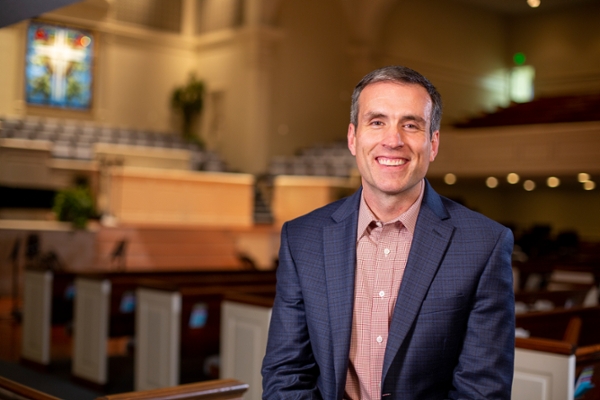
Beeson Divinity School PodcastPastoral Ministry: A Conversation with David EldridgeCo-hosts Doug Sweeney and Kristen Padilla talk to Beeson alum David Eldridge about what he has learned about pastoral ministry.
2020-04-0726 min
Rent Perfect with David PickronEp. 8 Three Questions to Ask Yourself When Managing Your Property w/ Jake BeesonThe idea of being a housing provider and managing your property sounds exciting. Professional Property Manager Jake Beeson goes over the three main questions you must consider before deciding to manage your own property... and they most likely aren't what you were thinking.
2020-02-2430 min
Rent Perfect with David PickronEp 2. There's a Science to Selecting Tenants w/ Jake BeesonBeing a landlord consists of so much more than just owning property. The first step to success comes when you put the right person into the property. Professional property manager Jake Beeson joins host David Pickron to share hard-earned wisdom in what to look for in your potential tenant (and it’s not what you might think).
2019-12-2818 min
Sacramental WhineDealing with Imposter Syndrome with Michael BeesonIn this episode, I had the honor of interviewing Bishop Michael Beeson. Michael, also known as Tau Isidore, is the Bishop of the Diocese of North Texas of the Liberal Catholic Union and serves as Rector of the Oratory of the Assembly of Archangels. Michael is Knighted in the Esoteric Chivalric Order of St. Meinrad and served as a co-founder of the Order of Knights Bishop of Avignon. Michael was consecrated into Apostolic Lineage by Bishops Bob McDonald and Jeremy Orosco. Outside of his work with the Liberal Catholic Union, he is involved in Hermetic an...
2019-05-3134 minRebankFounder Sessions - David Velez, NubankWelcome to the fourth instalment of our Founder Sessions series. We're joined by David Velez, the Founder and CEO of Nubank, the leading financial technology company in Latin America. Nubank has 5 million credit card customers, 2.5 million bank account customers and has raised $420 million from investors including Sequoia, Tencent, Tiger Global, QED, Founders Fund and more. Before founding Nubank in 2013, David was a Partner at Sequoia in charge of the firm’s Latin American investments. Before Sequoia, David worked in investment banking and growth equity at Goldman, Morgan Stanley and General Atlantic. As always, connect with us onTwitter, Facebook, LinkedIn or on ou...
2018-12-0416 minRebank: Fintech AnalysisFounder Sessions - David Velez, NubankWelcome to the fourth instalment of our Founder Sessions series. We're joined by David Velez, the Founder and CEO of Nubank, the leading financial technology company in Latin America. Nubank has 5 million credit card customers, 2.5 million bank account customers and has raised $420 million from investors including Sequoia, Tencent, Tiger Global, QED, Founders Fund and more. Before founding Nubank in 2013, David was a Partner at Sequoia in charge of the firm's Latin American investments. Before Sequoia, David worked in investment banking and growth equity at Goldman, Morgan Stanley and General Atlantic. As always, connect with us onTwitter, Facebook, LinkedIn or on our...
2018-12-0416 minRebankDigital Banking is 1% Finished with David BrearDavid Brear is one of the most prominent thinkers and doers in our industry. David is focused on addressing one of the biggest challenges in banking: driving technological innovation at large, incumbent organizations. David is CEO and co-founder of 11:FS, a FinTech consultancy that helps banks become truly digital. He's also cohost of FinTech Insider, a blockbuster podcast about FinTech and financial services. Named among the Top 100 Most Influential FinTech Leaders of 2016, David is one of the most recognized and influential people in financial services. David worked at Lloyds Banking Group and Aviva on large-scale digital transformations...
2017-03-2140 minRebank: Fintech AnalysisDigital Banking is 1% Finished with David BrearDavid Brear is one of the most prominent thinkers and doers in our industry. David is focused on addressing one of the biggest challenges in banking: driving technological innovation at large, incumbent organizations. David is CEO and co-founder of 11:FS, a FinTech consultancy that helps banks become truly digital. He's also cohost of FinTech Insider, a blockbuster podcast about FinTech and financial services. Named among the Top 100 Most Influential FinTech Leaders of 2016, David is one of the most recognized and influential people in financial services. David worked at Lloyds Banking Group and Aviva on large-scale digital transformations...
2017-03-2140 min
RebankIBM Watson & the Future of Cognition with David RobsonDavid Robson leads IBM's Watson business in the European financial services sector. Perhaps the world's most recognizable AI system (after HAL 9000), IBM's Watson is live across multiple industries and is using artificial intelligence to solve hard, real world problems. For the uninitiated: Watson is a cognitive computer that can read, understand, reason and engage with humans in support of a broad range of knowledge workers including medicine, banking and insurance. David has been working with Watson for two years, advising banks and insurance companies on how to deploy cognitive technology within their operations.
2016-11-2328 min
Rebank: Fintech AnalysisIBM Watson & the Future of Cognition with David RobsonDavid Robson leads IBM's Watson business in the European financial services sector. Perhaps the world's most recognizable AI system (after HAL 9000), IBM's Watson is live across multiple industries and is using artificial intelligence to solve hard, real world problems. For the uninitiated: Watson is a cognitive computer that can read, understand, reason and engage with humans in support of a broad range of knowledge workers including medicine, banking and insurance. David has been working with Watson for two years, advising banks and insurance companies on how to deploy cognitive technology within their operations.
2016-11-2328 min